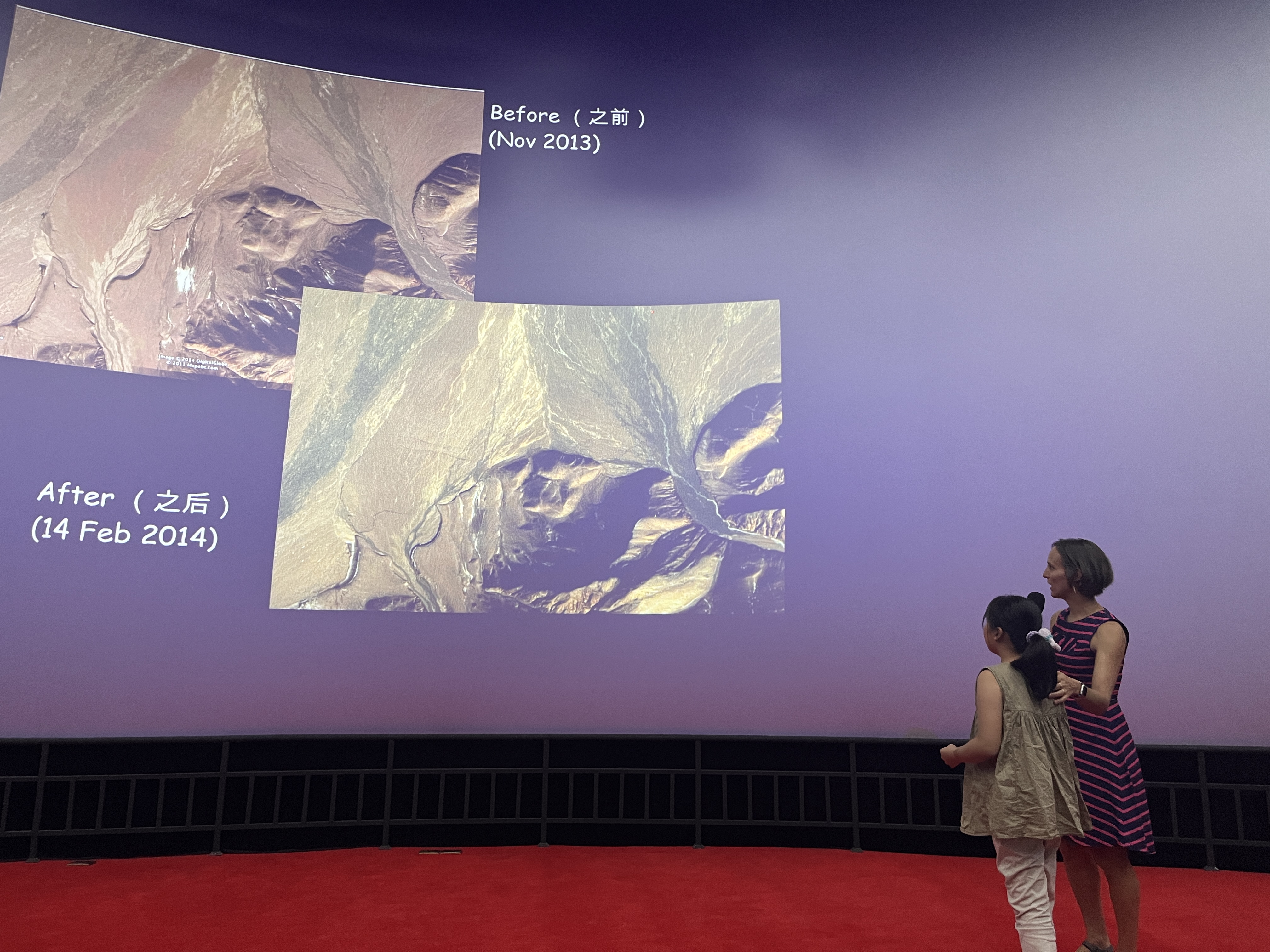
Chevalier invites a student to answer questions about earthquakes.(PHOTO: S&T Daily)
By?LONG Yun & ZONG Shihan
"Science is like an adventure, a super mysterious treasure, but you'll eventually find it and have lots of fun on the way." French/Belgian geoscientist Marie Luce Chevalier gave a talk at the Beijing Planetarium on August 18 to dispel misconceptions about quakes, one of the most acute causes of anxiety for those living in seismic zones.
Chevalier has extensive experience working in earthquake-prone areas in western China and works at the Institute of Geology under the Chinese Academy of Geological Sciences now. During the talk, she spoke about the formation of the Qinghai-Xizang Plateau, how seismic risks can be assessed especially in Xizang, and post-earthquake responses. She also provided a glimpse into the challenges confronted by geologists during fieldwork, coupled with the awe-inspiring landscapes that these areas offer.
Her closing remarks emphasized the need to actively mitigate the risks posed by natural disasters, safeguarding the fragile ecological environment of the Qinghai-Xizang Plateau, a critical endeavor that aligns with China's mission to foster a global community that prioritizes the well-being of Earth's ecosystem.
This event left an optimistic impact on all attendees, earning her widespread applause. "I am amazed by her fluent Chinese, and I love her lecture," a student from Beijing No. 5 middle school told S&T Daily, adding that Chevalier's emphasis on interaction deepens their understanding of earthquakes.
A young science fan noted in an interview with S&T Daily that Chevalier's real-life research makes him feel resonated. According to him, the connection to Chevalier's adventures in the field inspired students to choose scientific research as their career.
This article is also contributed by LI Xiang from Foreign Talent Research Center, MOST.
The trio will conduct a series of experiments in fields such as life science, fluid physics, combustion science and materials science. Notably, this is the first time that fruit flies have been taken on a Chinese space mission as experimental subjects. What made scientists choose fruit flies? What experiment will they undergo?
